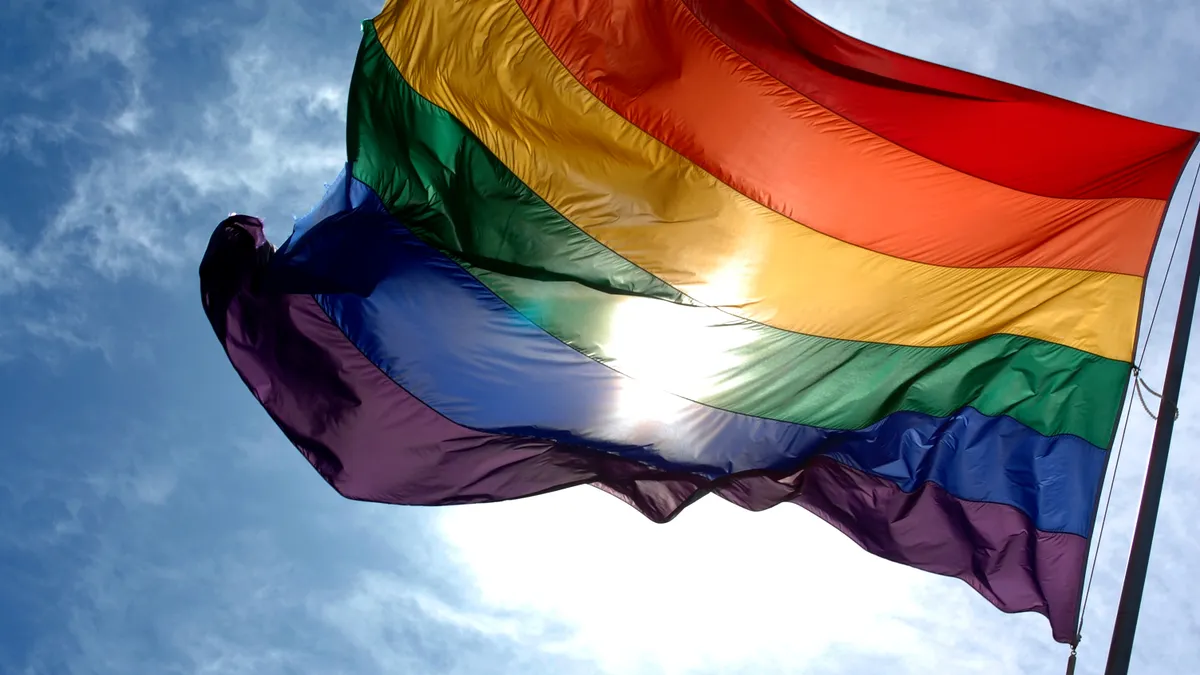Dive Brief:
- Forty-seven percent of LGBTQ respondents in a new Glassdoor survey said that being "out" in the workplace could hurt their career; perhaps for this reason, 43% say they are not fully out at work.
- More than half (53%) of surveyed LGBTQ employees reported experiencing or witnessing anti-LGBTQ comments by co-workers, compared to only 30% of surveyed non-LGBTQ employees. Additionally, 50% percent of all surveyed employees, and 68% of surveyed LGBTQ employees, said their company could do more to support LGBTQ employees and allies at work.
- Glassdoor's LGBTQ and ally employee group leader, Jesus Suarez, called the results "disheartening." The report should be a wake up call to employers, Suarez said; "Any employer that chooses to ignore implementing supportive working environments and policies [risks] missing out on hiring quality talent."
Dive Insight:
As public sentiments have evolved, LGBTQ workers are increasingly likely to be out at work. In a 2018 Human Rights Campaign survey, 46% reported being "closeted" at work, down from 50% in 2008. Among those who were not open at work about their sexual orientation and/or gender identity, 38% said they were concerned about being stereotyped, while 36% were concerned about potentially making others uncomfortable.
Despite advances, social and political factors continue to dissuade LGBTQ workers from being open about their sexuality at work. A 2017 CareerBuilder study found that 40% of surveyed LGBTQ employees felt bullied in the workplace — and 41% of those said the intimidation made them quit their jobs.
Even absent overt bullying, many LGBTQ workers don't feel comfortable bringing their whole selves to the workplace, and this can have a variety of consequences. For example, according to a Human Rights Campaign report, 20% of LGBTQ employees are afraid to request time off to care for a loved one because the request might out them at work.
The Boston Consulting Group recommends employers develop LGBTQ networks, raise staff awareness of LGBTQ concerns, and ensure LGBTQ employees have equal access to benefits. A culture that embraces diversity appears not only good for employees, but for the organization: Diverse teams improve decision-making and perform better, according to Ken Bouyer, director of inclusiveness recruiting at Ernst & Young (EY) Americas. They also more accurately represent a diverse customer base.












